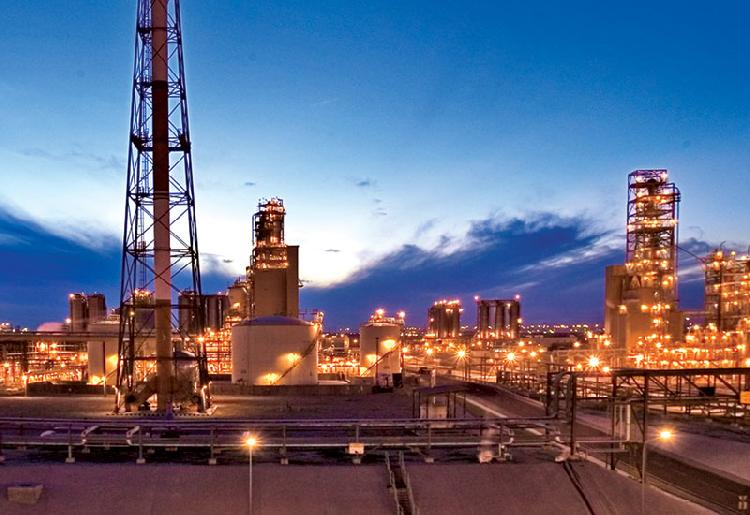
Saudi petrochemical sector growth prospects excellent
Saudi Arabia is leveraging low oil prices to accelerate development of its downstream petrochemical derivatives sector, and will add over 30 million tonnes of production capacity by 2020, raising production to 126 million tonnes from 2014 levels of 94.6 million tonnes, the latest edition of The Oil & Gas Year (TOGY) revealed. Capital expenditure in the petrochemical sector as well is set to further expand, it noted.
Diversifying its existing ethylene and methanol petrochemical portfolio into more complex, distinctive products, including specialty chemicals and engineering thermoplastics, said “going downstream is a logical long term strategy for Saudi Arabia.” He noted that “the country took a wise and fair step in encouraging private investment in the petrochemical sector as it turns its inexpensive petroleum production into a diversified value chain and high value added products.”
Saudi Arabia will soon dominate Middle Eastern competition in the development of value-added petrochemical exports by 2020 despite strong regional and international competition, the report added.
With more industries in Saudi Arabia’s Eastern Province than in the rest of the GCC combined, KSA’s push into petrochemicals derivatives will also strengthen the local downstream industry and increase opportunities for technology transfer partnerships, value-added services as well as support national professional employment goals, particularly for women in the workforce.
Targeting both local and international markets for growth, the industry’s future is undoubtedly bright. Global chemicals demand is expected to double by 2030 and the Kingdom has privileged access to gateway markets in as Asia and Africa within 3,000 kilometres of its borders. These gateways will provide access to the world’s population growth centres in coming decades. Moreover, KSA is planning to reverse the GCC’s dependence on petrochemical imports, valued at US$23.1 billion in 2013.
In an exclusive interview with TOGY for The Oil & Gas Year, Saudi Arabia 2015, Dr. Abdulwahab Al-Sadoun, Gulf Petrochemicals and Chemicals Association (GPCA) Secretary General, said “Saudi Aramco has demonstrated full commitment to the national agenda in developing the mega projects of PetroRabigh and Sadara. It will enable the production of new products which will stimulate a new set of downstream industries in the Kingdom.” These include conversion industries that rely on petrochemicals, plastics and fertilisers.
The petrochemicals sector is the largest non-oil sector in KSA with standing investments of $63.5 billion, including an expected $50 billion in capital expenditure by 2020 across three major petrochemical projects and two expansions.
The Sadara chemical complex in Jubail Industrial City II and PetroRabigh are two such keystone projects.
A US$20 billion joint venture between Saudi Aramco and the Dow Chemical Company, Sadara alone is the world’s largest chemical complex to ever be constructed in a single phase, with 26 world-scale manufacturing plants. Adding 330,000 metric tonnes of output and positioning Saudi Aramco as a global top 10 chemical producer by 2020, Sadara will change how the petrochemical business is conducted in Saudi Arabia and will be the first chemical producer in the Gulf to use naphtha as a liquid feedstock.
“Petrochemicals are already the largest non-oil export from Saudi Arabia. The development of clusters and the diversification of petrochemicals derivatives strengthen the local downstream industry and increase opportunities,” Mr. Mutlaq H. Al-Morished, CEO of Tasnee told TOGY.
To sustain its growth trajectory, the petrochemical industry needs to invest to improve its performance and global competitiveness in manufacturing, supply chain management, marketing, sourcing and services. As a consequence, TOGY is expecting a more active M&A market in the coming 12 months as companies consolidate their market share and pursue technology acquisitions.
“It certainly looks like a great year for a focus on Saudi Arabia’s petrochemicals industry. It is estimated that it will be responsible for a total production of more than 115 million tonnes at the end of 2016,” said Ms. Annie Michailidou, Country Director TOGY.



























